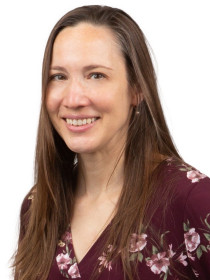
Mary Alice Scott
Connect with Mary
About Mary
Scott is a medical anthropologist whose research interests include critical ethnographic analysis of health, health care, and health policy in the United States, with particular focus on the U.S.-Mexico border region. She is also interested in participatory methodologies and action-oriented research.
Scott is a member of the Doña Ana County Wellness Institute, an organization that convenes agencies and individuals working to address health equity in the county. Her research focuses on teaching and learning health equity in medical education and addressing structural causes of burnout in primary care.
Contributions
In the News
Publications
Examines how a free clinic became a federally qualified health center following the passage of the Patient Protection and Affordable Care Act in 2010. Describes the challenges clinic staff faced in transitioning to an FQHC.
Describes the implementation and evaluation of an interprofessional training for graduate-level healthcare trainees. The results suggest that after completing the training, trainees felt more confident in their ability to work within an interprofessional team and more likely to utilise a team-based approach in the future.
Discusses the involvement of undergraduate researchers as near-peer mentors in a youth participatory action research project with high school students that addressed local educational inequities.
Draws from experience with navigating the complexities of consuming Coca-Cola and other soft drinks as a starting point to examine the conflicting roles that such drinks played in the lives of women in Los Canales, Veracruz, Mexico. Argues that in order to understand the seeming conflict between women's recognition of the health consequences of drinking soft drinks and continued extensive use of them, one must move beyond simple notions of non-compliance, fatalism, and lack of proper education. Instead, a broader understanding of health and well-being that includes conceptions of respect, enjoyment, safety, and sociality in the context of a lack of resources to maintain healthy diets is necessary.
Focuses on the health consequences of care work for grandmothers in southern Veracruz, Mexico who assume the primary responsibility for caring for their grandchildren when the parents migrate out of the community.